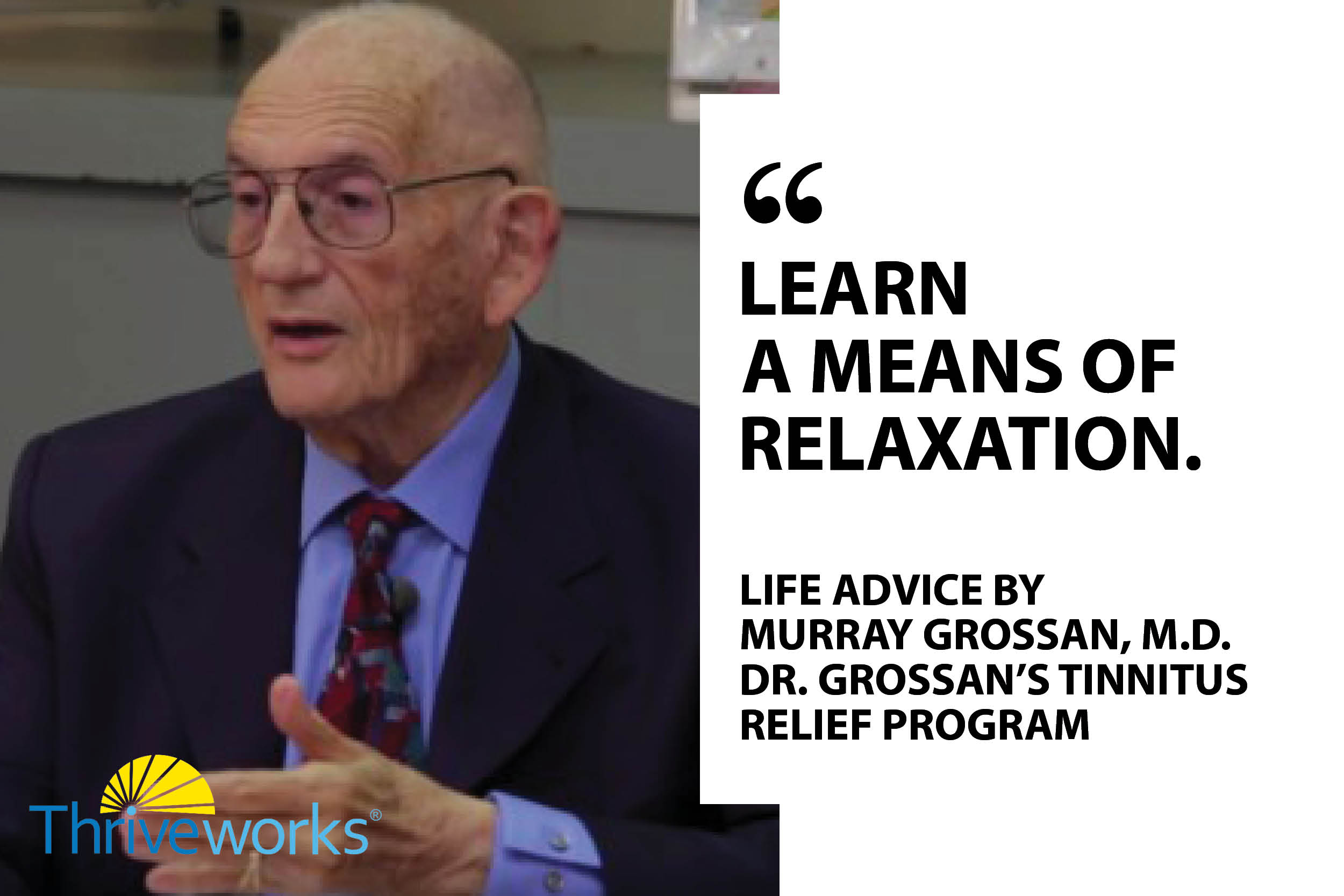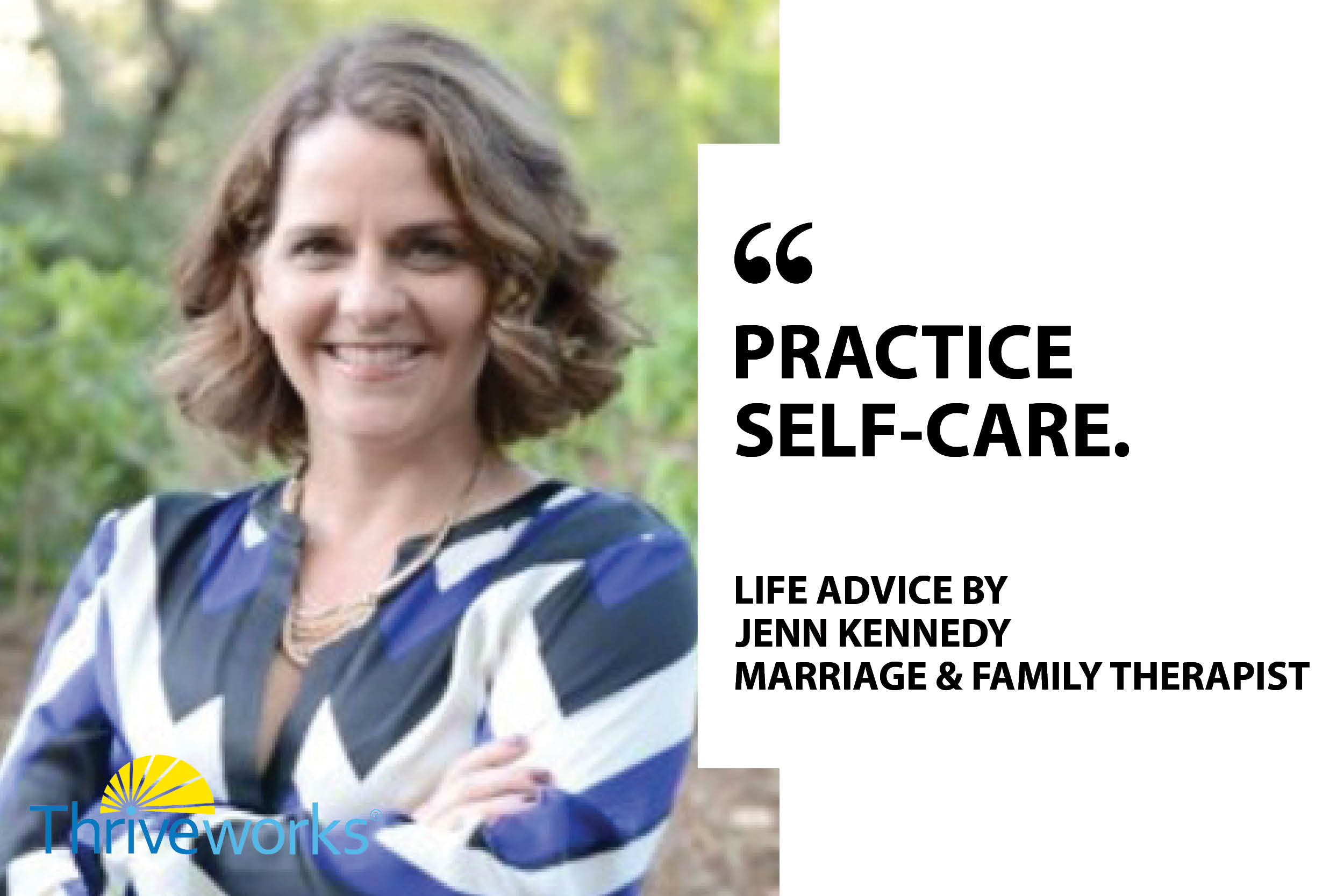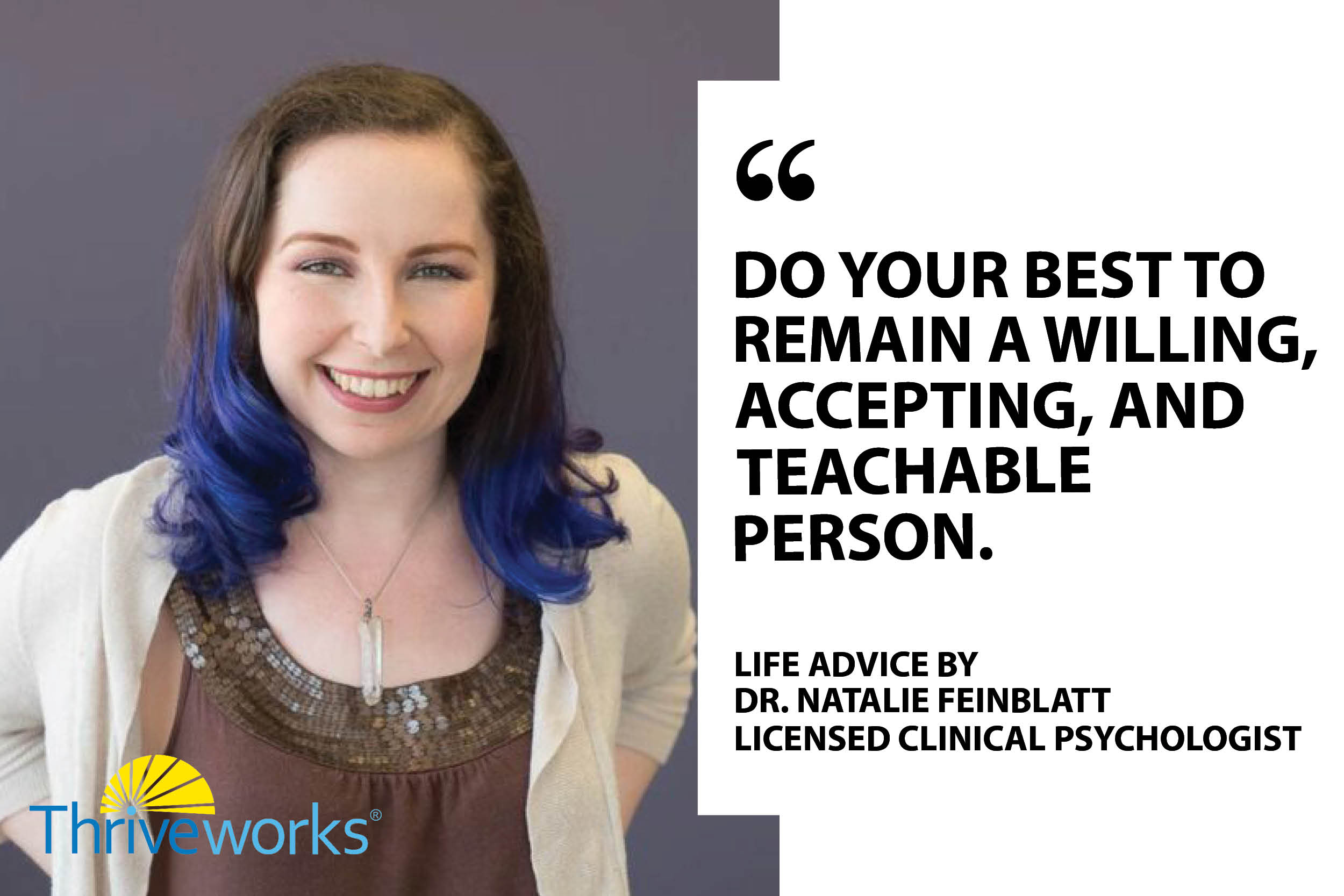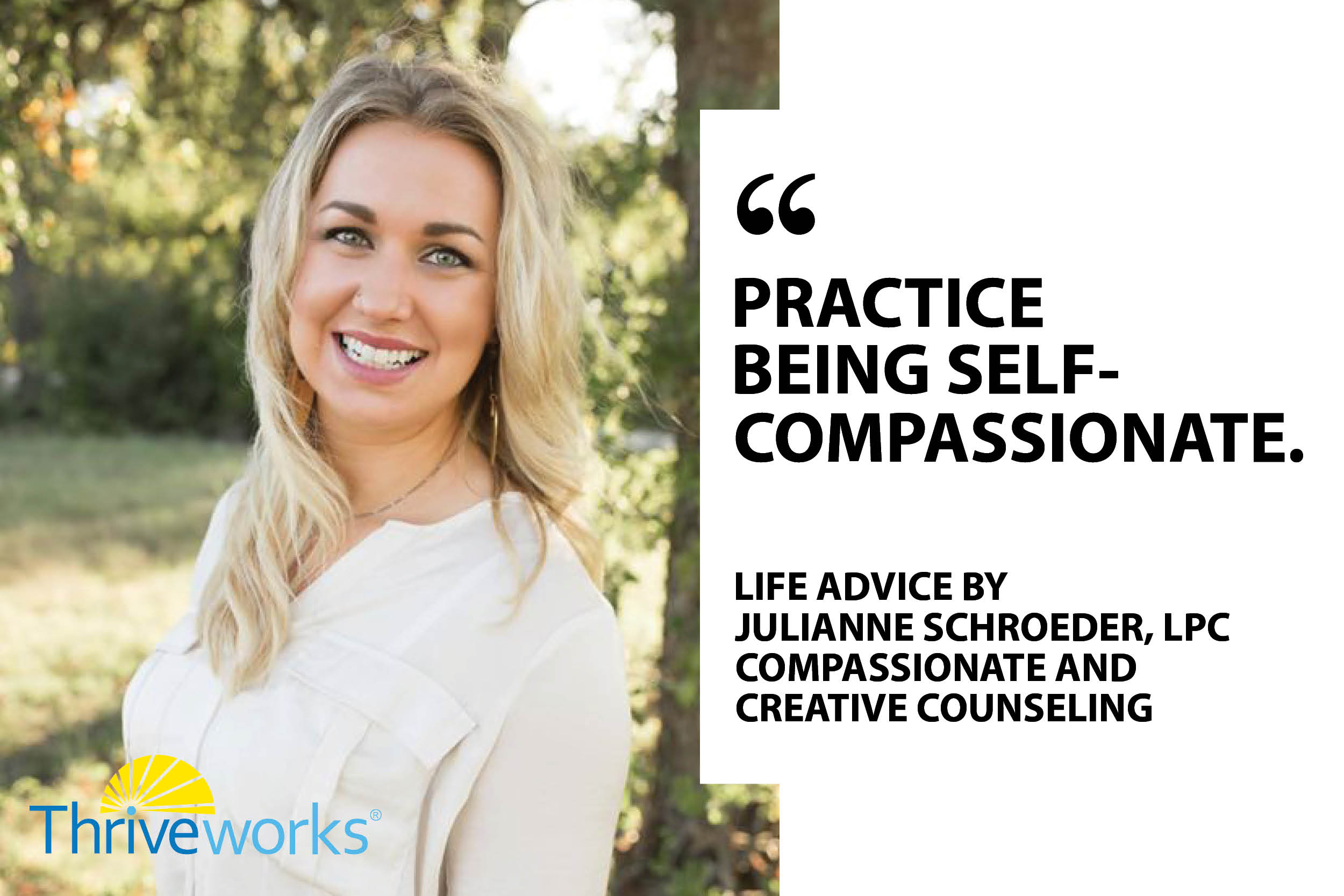
Life’s hard—that is a fact. We all struggle from time to time, whether it be at work, in our relationships, or in our own compact minds. We get off course, can’t figure out which way’s up, and scramble for something to keep us afloat. Sometimes, however, all we really need is an outside perspective—a simple piece of advice to set us straight. So, I asked psychologists and therapists for just that: one key piece of advice, which they believe everybody can benefit from. The following are their resulting words of wisdom:
1) “Don’t take your thoughts so seriously.”

I know from personal experience that our thoughts can make us go pretty crazy sometimes—but the thing is, they’re just thoughts. And we really shouldn’t take them so seriously. “This one piece of advice can help every single person across all psychological disorders, as well as just regular everyday life problems,” says clinical psychologist Anna Prudovski, M.A. “Thoughts are not facts. And they are not threats. They are, well, just thoughts. If we learn to take a step back and observe them instead of either engaging with them or fighting them, our lives will immediately improve. And even if your thought is 100% true, ask yourself if engaging with it helps you, or does it bring more problems and misery?”
2) “It’s not about you.”

Sometimes we can’t help but take our partner’s cold shoulder personally or worry about our friend not calling us back. It is important to realize, however, that it isn’t always about us, according to psychotherapist and owner of Thrive Therapy Amy McManus. “Is your teenager acting like they hate you? It’s not about you. They are confused about who they are, and it’s safe to be angry at you. Is your spouse grumpy when he comes home at night? It’s not about you. Don’t take it personally, be understanding, listen to his concerns, and your relationship will thrive,” she explains.
3) “Learn a means of relaxation.”

We get so caught up in this race called life that we forget to stop for a breather. We should instead, according to Murray Grossan, M.D., learn how to relax. “This should include looking in the mirror and seeing your face relax, your jaw relax, and your shoulders relax,” he explains. “With true relaxation, your body chemistry is free of adrenalin and stress chemicals; you can then face clearly the problem. There will always be stressors but if you fully develop a method of reducing the stress chemistry, then your brain is free to do its best.”
4) “Let yourself off the hook.”

It’s true that we are our own worst critic, as we often hold ourselves to unrealistic expectations. But it’s important we know that, “it’s absolutely okay to ask for help,” as explained by Adriane Kruer, clinical psychologist. “Beating yourself up for needing help is just a double whammy—already feeling bad and then being mad at yourself for feeling bad makes things feel worse! Caring for yourself like you would care for a friend or family member can cut down on our self-judgment about having worries or concerns. It’s okay to need help—it’s a totally human experience.”
5) “Practice self-care.”

A more professional rendition of the ever-popular: treat yourself. “Across the board, the one thing that seems to make the most difference is self-care,” says Marriage and Family Therapist Jenn Kennedy. When people attend to their own needs, it has benefits that push back on a litany of challenges. Examples of self-care: massage, time with friends, take a class, yoga class, take a nap. Whatever makes you feel better and feels kind to you is helpful for pushing back on the usual mental health culprits.”
6) “When people tell you who they are, believe them!”

Relationships can be difficult to maintain, whether it be a marriage, a friendship, or even one between mother and daughter. But we can make it a whole lot easier on ourselves by just listening to one another, says Licensed Clinical Social Worker Nina Rifkind. “When someone says it’s not a good time for them to start a relationship, life is too complicated, and the ther person pushes the issues, they invariably end up regretting it,” she explains. “Similarly, if a friend or family member tells you they’re very scattered, and continually forgets your birthday or other important occasions, it’s time to change your expectations accordingly or let go of that relationship. Start believing they will continue to be who they say and show they are—and if necessary, move on.”
7) “Feel your feelings.”

A lot of us are experts at hiding from our feelings or pushing them aside. But we should really be doing the opposite: “While you may not want to act on every feeling you have, try to experience each one fully in the privacy of your own heart. Name your feelings (e.g., anger, sadness, dread, etc.) and remind yourself you’re allowed to have them,” says Psychotherapist Tina Gilbertson. “Feelings are like molars: healthy when they break through to the surface and much harder to deal with if they become impacted,” she concludes.
8) “Take your own advice.”

We’re experts when it comes to comforting and advising our friends, but totally freeze up when it comes to helping ourselves through a tough time. Therefore, we should channel advice we’d give a friend in the same situation. This is further explained by Paul DePompo, board-certified psychologist: “We are way better at coming to solutions when it is for someone we care about. When it comes to us it can get so stressful that we cannot think as clear, so the best advice is what would you say to a friend?”
9) “Do your best to remain a willing, accepting, and teachable person.”

We’re all striving to be the best people we can be. To some, that’s being kind, patient, hard-working, determined, funny, fit, and good-looking all at the same time. But how exhausting and unrealistic is that? It’s time we narrow that list and seek to become a willing, accepting, and teachable individual instead, according to Licensed Clinical Psychologist Natalie Feinblatt. “You won’t be perfect at it, but should focus on progress rather than perfection,” she says. “These three mindsets will serve you greatly in regard to your mental health, relationships, and overall wellness.”
10) “Practice being self-compassionate.”

We dedicate a lot of time and energy into being there for our loved ones, but we don’t give ourselves that same necessary attention. It’s time we start showing ourselves some compassion, according to Julianne Schroeder, certified therapist. “You won’t experience a transformation overnight, but being committed to thinking, feeling, and doing things differently will allow for a different result,” she explains. “Learning to counter negative self-talk is a requirement for becoming more accepting and compassionate of oneself. Trust the process, taking it one compassionate statement or action at a time.”
Let’s keep in touch! Sign up to receive our newsletter:
Start a Relationship with An Exceptional Counselor
- Skilled and caring professional counselors
- Accepting all major and most insurances
- High-touch customer service & premium benefits
- Same- or next-day appointments
- Ultra-flexible 23.5hr cancellations













